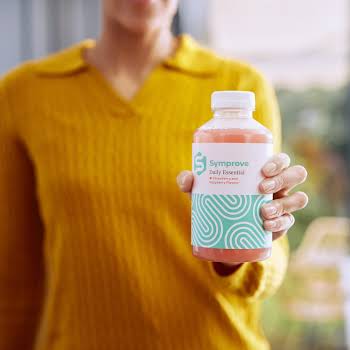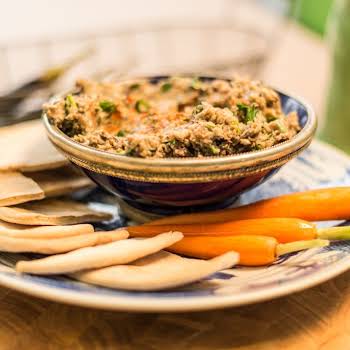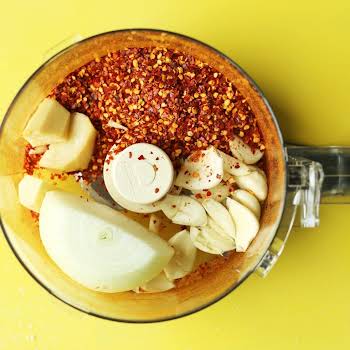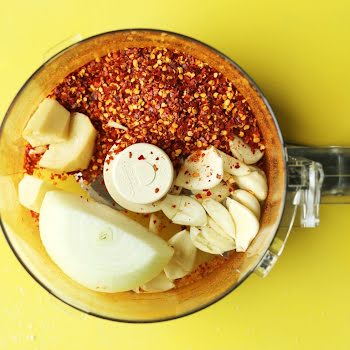
Sponsored
Gut Health 101 with Irish pharmacist Oonagh O’Hagan
Sponsored By

By IMAGE
13th Feb 2024
13th Feb 2024
Sponsored By

Here, we ask an expert Irish pharmacist how best to fortify your gut and ensure a healthy immune system after a course of antibiotics.
Irish pharmacist and MD of Meaghers Pharmacy Group Oonagh O’Hagan has been a practising pharmacist for over 20 years. A fountain of knowledge and experience, she founded Meaghers Pharmacy Group back in 2001, and her passion for helping people is still as vibrant as the day she started.
Here, we’re getting a masterclass on the dos and don’ts of taking antibiotics, how best to restore our gut health after a round of antibiotics, and the pharmacist-approved supplements we should all be taking.
*Use the code GUT20 for 20% off all gut health products at Meaghers Pharmacy until February 29.*
What are the different types of antibiotics, and which are the most common?
Antibiotics fall into two main groups, we begin with broad-spectrum antibiotics which are drugs that target and treat a broad range of bacteria types. In community pharmacy in Ireland, we dispense larger numbers of broad-spectrum antibiotics that can be used for a variety of conditions like respiratory infections, ear infections, UTIs or sinus infections.
The most common examples used in Ireland are amoxicillin/Clavulanic acid which is a penicillin, doxycycline and Clarithromycin. For urinary tract infections, it is also common to dispense trimethoprim or nitrofurantoin.
The other group are narrow-spectrum antibiotics and these are much more specific in their target and generally focus on one type of bacteria or infection. An example of this would be soft tissue infections like cellulitis caused by the Staphylococcus group of bacteria we would see in drugs like flucloxacillin. Penicillin G is another specific antibiotic used to treat Streptococcus infections commonly involved in Strep throat.
How do they work on an infection? Do they kill healthy gut bacteria as well?
When you have an infection you have some bacteria present that shouldn’t be there. Think of that bacteria being an intruder in your system, that infection is causing your body problems, and your body reacts by letting you know there is an intruder. Your body, for example, may increase your temperature in an attempt to kill the bad bacteria, or use signalling such as pain or inflammation.
Antibiotics work by killing the bad bacteria—or the intruder—and thus battle alongside your own immune system improving the symptoms of the infection. However, the challenge with this is that when antibiotics are used they often work indiscriminately so they will also kill the good bacteria that normally reside in the gut, which then has a negative impact on your gut microbiome.
What are the important dos and don’ts of taking antibiotics?
The most important thing to remember is that you must take the antibiotic as directed. So, if it is one three times a day for seven days, you must take it as prescribed and finish the course even if your symptoms improve. This is vital for the medicine to act effectively and to reduce antibiotic resistance.
Take it at the instructed time. For example, if the dose is one in the morning and one in the evening then take it as instructed, because it means that drug will work best at those times. The morning dose helps to keep the correct level of antibiotic in your blood during the day and then the evening dose helps maintain this overnight as the morning dose starts to be less effective. Some antibiotics become less effective quicker and so need to be taken more often throughout the day.

Please read the pharmacy label on your medicine and follow the instructions. If you have any questions or concerns ask your pharmacist, we are there to help you understand your medicines.
Other things that you can do to ensure your antibiotic is most effective are simple things like drinking a full glass of water when taking the tablet, not just a sip, as you are then giving the tablet a greater chance to dissolve effectively in the tummy.
If the directions say to take with food, that is important. Some drugs are not very soluble in water but dissolve better with oily substances. Our food is made up of a mixture of fats and water so that particular drug will be absorbed more effectively with food. In some cases, the antibiotics can themselves be hard on the tummy and make you nauseous, so taking with food when instructed can help to protect you from this side effect.
Are there any foods or drinks we should avoid during or after them?
If advised, avoid grapefruit when taking your antibiotic. It can interact with some antibiotics. Some other antibiotics also interact with alcohol so check with your pharmacist if unsure. When antibiotics upset the bacterial balance, you may experience side effects, such as nausea or diarrhoea. While experiencing these symptoms it would be advised to avoid foods which contribute to their severity for you. Try to avoid processed foods as much as possible, as these can also harm the gut bacteria. Eat a whole food diet, drink lots of water, and rest whilst your body is fighting off the infection.
What are a few ways we can restore our gut health after a round of antibiotics?
Our gut is full of bacteria — thousands of different species, and billions of bacteria, some good and some bad. In fact, there are more bacteria in us than there are human cells in our body, and we live in symbiosis with them. We feed them and allow them to grow and thrive and they do many things for us. They help digest our food, and produce lots of vitamins and short-chain fatty acids, which have many health benefits. They train our immune system, help with detoxification, and have a positive impact on our hormonal, metabolic, skin and mental health too.
In fact, scientists are only just beginning to understand the many roles within our bodies that these bacteria are involved in. I like to refer to them and to our microbiome as our “internal pharmacy” and it’s really important to understand that we need to do all we can to protect them and allow them to grow and thrive so that they can work optimally. Just because you can’t see them doesn’t mean that they are not critical for our health. All these bacteria, together with viruses, fungi and protozoa all contribute to the community of microorganisms in the gut commonly called the gut microbiome.
Antibiotics will kill both the good and the bad bacteria, so my advice is to take a gut health supplement during the course and after you finish the course in order to repair the damage to the good bacteria and restore the microbiome to optimal levels again.
One single antibiotic can wipe out many of the good bacteria in your gut microbiome and it can take up to one year to restore that balance after a single antibiotic. However, if you take a gut health supplement such as Symprove you can restore this balance of good bacteria much faster after a course of antibiotics.
Including fermented foods in your diet is also a good idea as they also are good sources of beneficial bacteria. All fermented foods contain microorganisms, but some heat or filtration processes can kill the beneficial bacteria. Taking Symprove and increasing dietary fibre will help restore the good bacteria in the gut, reducing unwanted side effects.
Including plenty of colour in your fruit and vegetables when recovering from an infection is also a brilliant idea. These colours represent polyphenols, which are powerful antioxidants that protect fruits and vegetables against the harsh environmental elements when they are growing. Polyphenols are superfoods for your gut bacteria and will help them flourish and grow much faster, so ensure you have lots of colour in your diet.

What supplements would you recommend to support your gut health?
The antibiotic has cleared the gut of many of its bacteria both good and bad. After a course of antibiotics, it’s a great time to introduce good bacteria and encourage the growth of the good bacteria in the gut. The BDA (British Dietetic Association) food factsheet on ‘Probiotics and Gut Health’ recognises the benefit of using probiotics alongside antibiotics and continuing their use for at least one week post-antibiotics. These recommendations are based on research.
Interestingly, probiotics with lactic acid bacteria (e.g. L rhamnosus) are more supported with clinical evidence at present. And taking the probiotic at a different time to the antibiotic will maximise the chance of survival and thus the impact of the bacteria in your probiotic.
My go-to recommendation is Symprove. In my opinion, it is the most effective gut health supplement I have experienced and is backed up by clinical data. Symprove is a water-based supplement, so the bacteria are alive and not freeze-dried in a capsule or tablet formulation. The four strains of bacteria in Symprove are alive when they enter your body and therefore they do not need to be reconstituted, and because they are suspended in an acidic water-based solution, the four strains of bacteria are accustomed to living in an acidic environment and can survive the harsh acidic environment of your stomach.
Clinical evidence shows that all the bacteria in your daily dose of Symprove pass through the stomach within 10 minutes and are ready to get straight to work. They grow and thrive when they reach your large intestine, which is where over 90% of your microbiome resides. Symprove should be taken first thing in the morning on an empty tummy and you should wait 10 minutes before taking any other food or drink to allow the bacteria time to pass from your stomach into your intestines.
Also importantly the particular species of bacteria in Symprove produce a product called lactate which acts as a food substrate for the good commensal bacteria already present in your large intestine so your daily dose of Symprove will not only deliver good bacteria to your gut, but it will also restore optimal levels of good bacteria already present there.
Anything else you’d like to add?
As a pharmacist, it is really important for me to emphasise that antibiotics are lifesaving essential medicines and if prescribed should be taken exactly as directed by your doctor. Don’t be fearful of taking antibiotics. It is critical to do so if they are prescribed for infections. It is, however, important to be aware of what they are doing when they enter your body and for you to take some steps to mitigate the damage they will cause to your good gut bacteria.
Your gut microbiome plays such an important role not only in your digestive health but in your overall health and well-being. When your microbiome is unbalanced and the levels of good bacteria have been reduced, this can impact you in many different ways and have negative impacts on your gut health, immune health, your skin health and many other aspects of your overall health and well-being. If you have any questions, worries or concerns speak to your pharmacist or get in touch with us at Meaghers Pharmacy where we are here to help!
Go with your gut – this month, we’re joining forces with Meaghers to shine a spotlight on the importance of gut health and how it affects your overall well-being, from your digestive health to your hormone, skin and mental health. To shop the best supplements to support your gut, visit meagherspharmacy.ie. Plus, use the code GUT20 for 20% off all gut health products until February 29.























